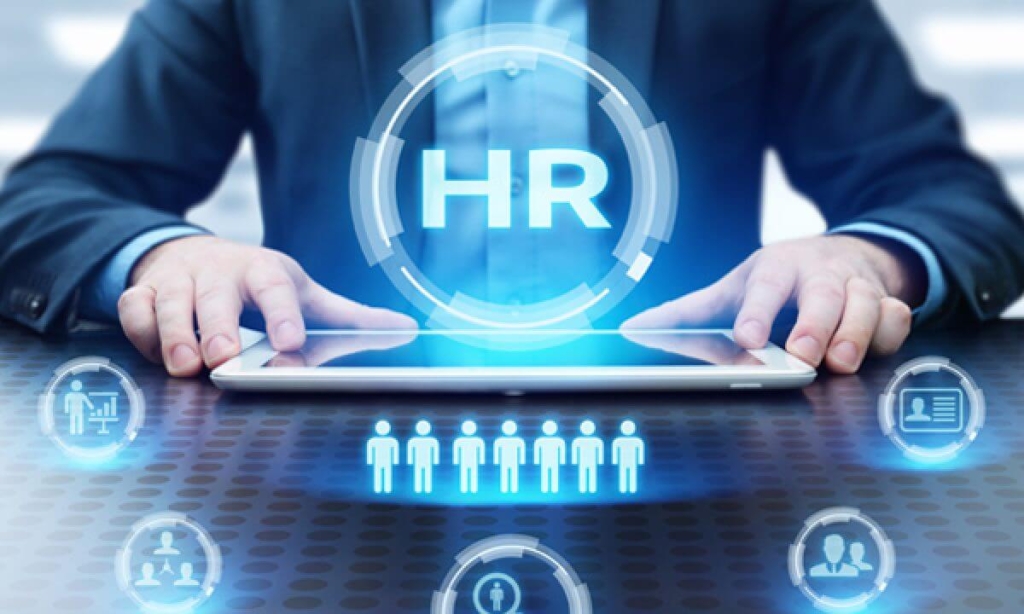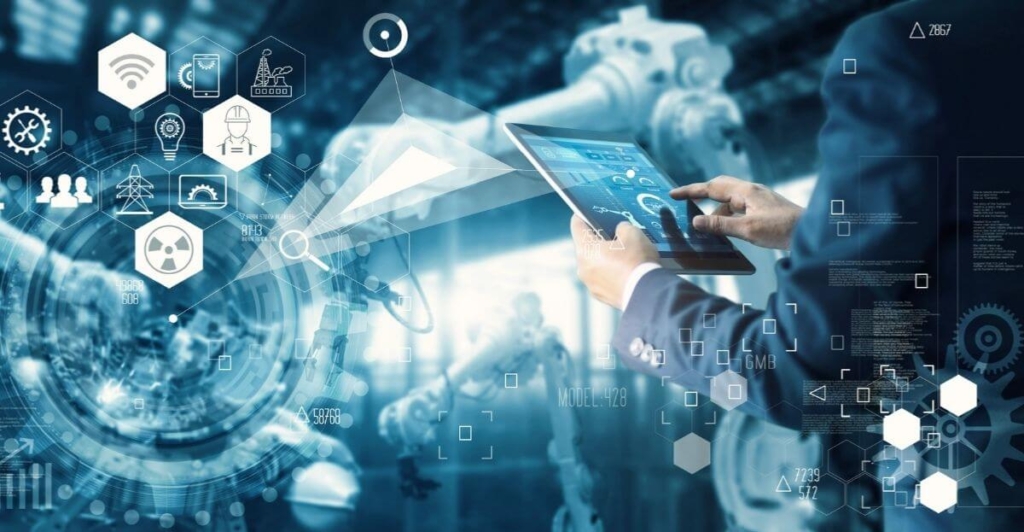Using AI in Human Resources for Future Success

November 10, 2023
We live in an era where technology transforms all industries, including human resources (HR). Using AI in HR redefines traditional HR practices for new levels of efficiency. AI propels HR operations into the future by combining strategy with data-driven insights. This evolution enhances capabilities to ready HR for coming challenges.

The role of AI in HR extends far beyond mere technological integration. It represents a paradigm shift in how HR professionals approach their work. AI complements traditional HR, creating synergies to amplify impact. Using AI in HR bolsters HR with advanced analytic capabilities and supports strategic initiatives crucial for organizational growth and stability.
How AI benefits HR departments
AI confers many benefits that touch all aspects of HR. It brings superior, strategic methodologies to the department.
Improved efficiency
Incorporating AI into HR functions liberates professionals from the shackles of time-consuming and repetitive tasks. Be it resume screening, scheduling interviews, or onboarding processes, AI provides automated solutions that not only streamline these activities but also ensure consistency and accuracy, thereby significantly enhancing operational efficiency.
By alleviating the burden of operational tasks, AI enables HR professionals to pivot their focus towards more strategic initiatives. Utilizing AI allows the HR department to delve deeper into workforce planning, leadership development, and cultivating a culture that resonates with organizational ethos, thereby ensuring that the human element within the entity is nurtured and developed.
Cost reduction
When using AI in HR for recruitment processes, organizations are empowered with data-driven insights which play a pivotal role in optimizing budget allocation. Data-driven recruitment becomes a cornerstone, as AI meticulously analyzes patterns, predicts trends, and provides a detailed understanding of recruitment channels, ensuring that every dollar spent is meticulously accounted for and utilized in avenues that provide maximum ROI.
AI not only plays a vital role in budget optimization but also crafts pathways for cost-effective solutions in various HR functions. Through AI-powered data analysis, HR departments can derive solutions for employee engagement, learning and development, and retention strategies that are not only effective but also financially prudent.
Enhanced decision-making
Examining how AI is used in human resources reveals a significant impact, particularly in fostering unbiased and impartial candidate selection. By employing data-driven evaluations, AI systematically eliminates inherent biases, ensuring that selections are based on merit, skill, and alignment with organizational needs rather than unconscious biases that may inadvertently creep into human decisions.
AI-generated insights transcend merely recruitment and delve into various facets of HR, offering informed and data-backed decisions in areas such as performance management, employee development, and succession planning. Through predictive analytics and detailed data visualization, HR professionals are endowed with the ability to make decisions that are not only immediate but also future-oriented, ensuring sustainable growth and development.

How AI is transforming human resources
AI’s digital tendrils extend into various facets of HR, transforming traditional methodologies into streamlined, data-driven processes that elevate each function it touches.
Recruitment and selection
The use of AI in human resource management has become synonymous with efficiency and precision. AI-driven job postings are engineered to target and attract suitable candidates by analyzing market trends and applicant behaviors, ensuring that opportunities are showcased to the most pertinent audience. Automated resume screening, fortified by AI, sifts through the plethora of applications, ensuring candidates are shortlisted based on merit and compatibility, while virtual interview assistants facilitate seamless and engaging interactions, sculpting a candidate experience that is contemporary and impactful.
Onboarding and training
The application of AI in HR profoundly reshapes the induction and developmental trajectory of an employee, especially during onboarding. By crafting personalized training modules, AI not only individualizes the learning experience for new hires but also nurtures them according to their unique needs and learning curves. Furthermore, automated feedback systems, grounded in AI, offer continuous and real-time performance insights during training courses, fostering an environment that is conducive for continual improvement and development.
Employee engagement and retention
Incorporating AI within employee engagement and retention unfurls a multitude of possibilities to improve employee satisfaction across various sectors. Predictive analytics delve deep into the echelons of employee satisfaction, illuminating potential attrition hotspots before they escalate into tangible issues. Meanwhile, virtual HR assistants stand poised to address and facilitate employee queries, ensuring a communicative and supportive environment that fosters retention and satisfaction.
Performance analysis
In the arena of performance analysis, using AI in HR provides a lens that captures real-time feedback, ensuring that employee performance insights are immediate, accurate, and actionable. Furthermore, the predictive capabilities of AI analyze and project employee performance trends, enabling HR professionals to craft strategies and interventions that are not merely reactive but also predictive in nature.

Talent management and succession planning
The role of AI in HR takes a front seat in talent management and succession planning. By identifying potential talent through algorithmic analyses and providing insights into career growth pathways, AI enables HR to strategically nurture organizational talent. Furthermore, succession planning is enriched by AI’s unbiased, data-driven insights, ensuring that leadership continuity is not disrupted by subjective influences.
Learning and skill development
AI moulds learning and skill development by formulating personalized learning recommendations, ensuring that employee development is not generic but tailored to specific roles and aspirations. Intelligent team planning, powered by AI, optimizes skill development efforts, ensuring that learning interventions are strategic, targeted, and beneficial across the organizational spectrum.
Strategic workforce planning
Strategic workforce planning using AI in HR becomes a structured and analytical process. AI systematically tracks learning topics and skills across the organization, ensuring a holistic view of organizational competency. Moreover, it guarantees compliance and fosters an environment of upskilling, ensuring that the workforce is not merely compliant but also adept and ready for ongoing and future business transformations.
Harnessing AI’s potential enhances HR practices, ensuring it works alongside, not in place of, human interactions within HR. Balancing technological efficiency and personal engagement is crucial as we delve into an era where AI and human insight blend. It’s vital to respect AI for its capabilities while safeguarding the indispensable human element in HR, guaranteeing a future that adeptly merges technological advancement with humane interactions.
AI’s transformative impact on HR functions goes beyond mere mechanical upgrades, blending technology and human expertise to create an intuitively intelligent domain. Using AI in HR breaks through operational limits, enabling a future where strategic, data-driven decisions drive organizations toward sustainable growth. The philosophy behind AI replaces anyone but HR intentionally intertwines AI and human expertise in HR. This not only crafts a fine equilibrium between technological prowess and human discernment but also lays the foundation for a future that is both technologically advanced and thoughtfully human-designed.




